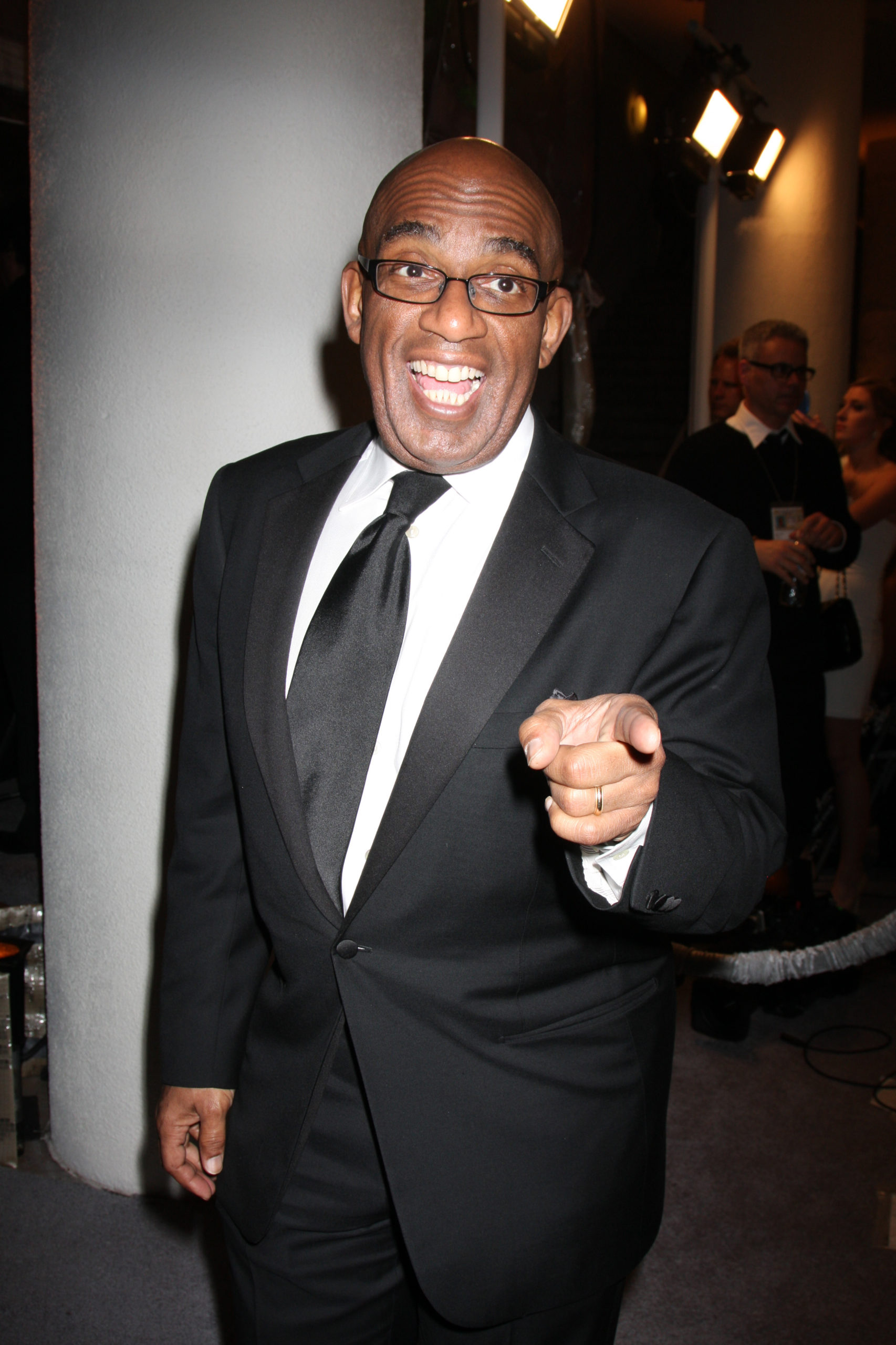
When you decide to go into radio, you start imagining what level of stardom you wish to reach. It doesn’t necessarily work out that way, of course, but you have to dream.
Maybe Al Roker originally saw himself as having the Matt Lauer role (hopefully, not!) – running The Today Show, not being a co-star or “the weather guy.”
But he’s made a career of being the affable sidekick. Like Gary Dell’Abate, George Costanza, or Robin, not everyone is destined to run the show, be the anchor, or start at quarterback.
Roker “gets” that, and it’s part of the reason why he’s not just survived on Today, he’s thrived. Roker replaced an icon – Willard Scott – and did it with flair, grace, and panache. In fact, he considers the venerable Scott as his main mentor.
Roker doesn’t try to be something he’s not. He lets his warmth, charm, and affability lead the way. And unlike so many personalities who thrive on being polarizing or controversial, Roker is simply fun to be around and likable. After all, who doesn’t love Al Roker?
And over the years, Roker’s used those traits to his advantage, carving out an impressive career full of fascinating roles. He’s covered hurricanes and other weather phenomena, led his eponymous “Roker-Thon” (a 34-hour weather marathon for charity), hosted the Macy’s Thanksgiving Day Parade since the mid-’90s, as well as numerous game shows.
Roker has also spent his time behind the mic, providing celebrity weather for several New York City radio stations. In many ways, he thinks more like a radio guy than someone who’s spent most of his adult life in front of a camera.
 True to form, Roker is a man of many hats – literally. He’s sported berets, fedoras, panamas, trilbys, you name it. He was named the Headwear Association’s “Hat Person of the Year” back in 2015. There’s even a fan-fueled Instagram account – Al Roker Wearing Hats – full of photos of his many-splendored head gear.
True to form, Roker is a man of many hats – literally. He’s sported berets, fedoras, panamas, trilbys, you name it. He was named the Headwear Association’s “Hat Person of the Year” back in 2015. There’s even a fan-fueled Instagram account – Al Roker Wearing Hats – full of photos of his many-splendored head gear.
Appropriately, when it comes to his many roles, Al Roker is very much a Renaissance man. He’s an author, a TV producer, an official supporter of the Ronald McDonald House Charities, and he’s even appeared in several Sharknado films – playing himself. (It’s hard to say which is most impressive.)
Earlier this month, he was highlighted in The Drum’s “3 Actionable Insights” feature. His career takeaways are the lessons you’d hope they’d teach fledgling radio professionals while they’re still in school.
So, here’s great advice from a guy who’s perfectly happy not being Jimmy Fallon, Bobby Bones, or Mick Jagger. As he’s learned – or better yet, elevated to an art form – you can make a very nice living being a supporting actor.
His career observations come at an important intersection for many of us, given the unstable economic climate and other uncertainties. In an environment filled with layoffs, furloughs, and career pivots, Roker provides important tools for navigating what’s next:
1. Just say “yes” – This is Roker’s way of echoing Seth Godin’s famous nugget of advice: be a linchpin. That’s the person in the organization always willing to make a contribution, who never turns down a chance to shine, and consistently wants to learn something new.
A look at Roker’s resume is proof positive he eats his own dog food . When presented with a new role, a new path, or a new opportunity, he has always said “yes” – especially if these new roles are “tangentially associated with what you (already) do.”
. When presented with a new role, a new path, or a new opportunity, he has always said “yes” – especially if these new roles are “tangentially associated with what you (already) do.”
In this environment, this insight is especially resonant. You never know the doors that will open, the new connections you’ll make, the people you’ll meet, or the new skills you’ll learn.
As he points out, “You don’t know what that ‘yes’ will lead to.”
2. Embrace the “second banana” role – Roker points to the greatest sidekick of all time, Ed McMahon as his inspiration – as evidence this strategy can work.
And he notes “You can have a really good career without being the top dog.” In fact, being a great utility player gives you the chance to do lots of fun things, with less pressure than the big star endures.
For Roker, that’s been more than his lot in show business, it’s his schematic, his master plan, his go-to strategy. And it’s worked perfectly.
3. What’s your superpower? Roker cites The A-Team  TV series as a unit that featured an elite group, each of whom had a key strength – or superpower.
TV series as a unit that featured an elite group, each of whom had a key strength – or superpower.
What’s yours? And how can you surround yourself with your own team of diversified contributors who can collectively help you win big?
Roker says that too many people take on the entire burden of being successful, mistakenly thinking they can do it all.
As he points out, “Whether they realize it or not, they do have a team, they’re just too egotistical to realize it.”
The top dogs are always the ones that get the spotlight – the President, the CEO, the team captain.
But there’s a lot to be said for building a career plan on best melding your strengths with others to create a true team effort –especially in today’s rough and tumble environment.
Better yet, you might want to grab a hat.
- Media And Technology In 2025: Believe It Or Not! - April 18, 2025
- In Radio, You Just Never Know - April 17, 2025
- The Secret To Making A Great Podcast (And Great Radio) - April 16, 2025




I loved this, Fred. I’ve made my living in the production/producer role, over 42 years making a living in radio, and I have never been let go from a radio job (knock on wood). I love learning about and teaching copywriting and production, and saying yes to those things that others don’t.
I’ve never heard this from Al Roker, but I knew when I heard it that it was just one of those things I knew instinctively without knowing the words. Thanks for writing this today, and writing all the things you do. You encourage me.
Sterling Tarrant
Director, Creative Audio Services
KSBJ, Houston, TX
Sterling, I very much appreciate you kind comments. When I read Roker’s insights, they struck a chord with me. It is things that many of us say, but it also occurred to me they were all things I was taught along the way. Thanks for reading our blog & engaging here.
This is hands-down the greatest advice anyone, at any level, in the industry can follow. I’ve spent nearly 40 years continuously employed on-air in the 3rd largest market in America being the 2nd, even 3rd banana. When we pissed off some organization… Mr Marquee Talent was getting grilled by the bosses, lawyers, etc while I was at the bar enjoying lunch. When the ratings took a fluke nosedive… Mr Marquee Talent was getting grilled by the honchos while I sat at the bar enjoying my lunch. Like Roker, I was part of something special but never ignorant enough to say “No” to the likes of Larry Wert, Jimmy de Castro, Dave Logan or the Zen Master Dave Richards. Heading to Rush Street one night, I stopped in to get my recorder in case I tripped over anything useful (which I usually did). The board-op for AM1000 flaked and they asked me if I could do the Blackhawks game. I was on the #1 morning show in Chicago that was also syndicated across the country at the time but, without hesitation, I said yes. I had one of Danny Bonaduce’s interns (he was on the Almighty 97.9 The Loop at the time) run to 7-11 and fetch me a 40oz. Then sat listening to the incredible Pat Foley call a Hawk win over the maple Leafs playing :30/:60 spots on carts when necessary. Overnight guy showed up on time & I was out the door. The industry is shrinking…. we all know this but we all need to remember that the word Yes/No could be the difference from you doing your shift or some guy from another state doing your shift . . . . . .
Freak, thanks for this interesting story about right place, right time, and saying YES. BTW Pat Foley was a former student of mine at MSU a long, long time ago. Great guy and a real pro. Hope you’re doing well.
agree completely
I loved this! Al is right and how you’ll fit it all in? Figure it out later and just do it lol. I’m in heaven right now doing a morning radio show, a podcast, writing for a women’s magazine next month, doing local and some national tv. I think if you’re a creative person it makes you better at everything when you can express those other interests gifts talents too
I agree. A daily show is a special outlet, but there are limits – time, boundaries, topics. After all, your goal is to get ratings. But these other outlets – the written word, podcasts, videos, etc. make it possible for personalities to show off other sides and angles, all of which can contribute to building your brand and strengthening your connections with audience groups. Thanks, Kim.